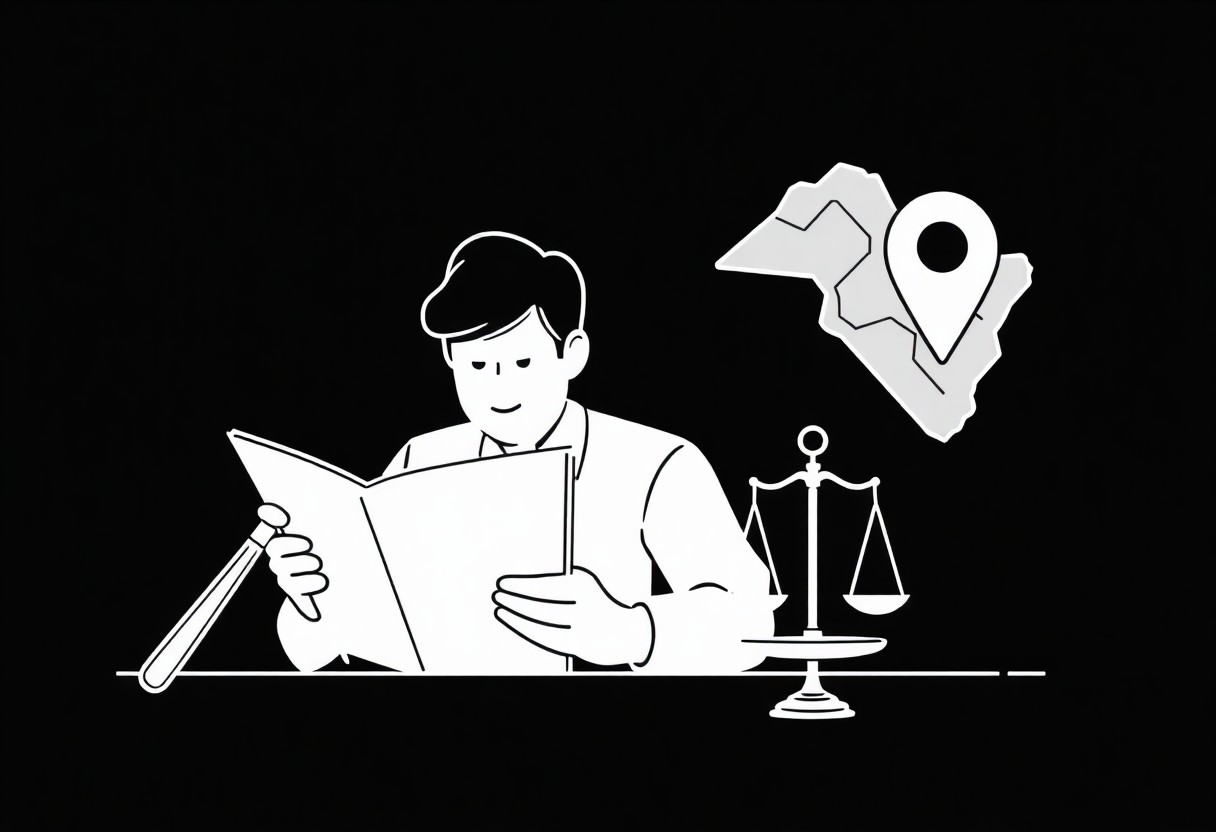How to Find a Trusted Divorce Mediator Near You
You may find yourself in need of a skilled divorce mediator to help navigate the complexities of separation. Selecting the right mediator can significantly impact your experience and the outcomes you achieve. This guide will provide you with crucial steps to locate a trusted divorce mediator in your area, ensuring you make an informed choice tailored to your specific needs. With the right support, you can work towards a resolution that works for both you and your former partner.
Decoding Divorce Mediation
Divorce mediation is a structured process designed to facilitate negotiations between couples seeking to dissolve their marriage. This method encourages open communication and aims to help you reach mutually beneficial agreements on various aspects of your divorce, such as child custody, property division, and financial support. The objective is to resolve disputes amicably, contributing to a more positive post-divorce environment.
Defining the Mediation Role
A mediator acts as a neutral facilitator in the divorce process, guiding you through discussions without taking sides or making decisions on your behalf. Their primary role is to encourage dialogue, helping you both to articulate your needs and concerns while steering the conversation towards a constructive resolution. By creating a safe and respectful space, the mediator helps you focus on finding common ground.
The Distinction Between Mediation and Litigation
Mediation differs significantly from litigation, where decisions are imposed by a judge. In mediation, you retain control over the outcomes, focusing on collaboration rather than confrontation. This voluntary and confidential process often results in less stress and emotional upheaval, as well as potentially lower legal costs compared to the adversarial nature of court proceedings.
The clear distinction between mediation and litigation lies in the approach and atmosphere of the respective processes. Mediation fosters a cooperative environment where both parties are encouraged to express their viewpoints, leading to tailored solutions that reflect your individual circumstances. In contrast, litigation often breeds hostility and an all-or-nothing mindset, as the judge ultimately determines the verdict. Statistics show that couples who pursue mediation tend to report higher satisfaction rates and a more amicable post-divorce relationship, making it a favourable choice for those willing to engage in constructive dialogue.
Crucial Qualities of a Competent Mediator
Identifying a competent mediator involves assessing several key qualities that can significantly influence the outcomes of your mediation process. Look for someone with a solid understanding of family law, exceptional negotiation skills, and a demonstrated ability to remain neutral while facilitating discussions. A good mediator fosters an environment of trust and openness, allowing both parties to express their concerns freely and work towards mutually beneficial solutions.
Credentials and Experience
Your mediator should possess relevant credentials, including certifications in mediation and family law, as well as substantial experience in handling divorce cases. Many mediators are trained professionals actively engaged in continuous education to stay updated with the latest legislation and best practices, ensuring they bring informed perspectives to your unique situation.
Empathy and Communication Skills
Effective mediators excel in empathy and communication, allowing them to understand your feelings and convey your concerns effectively to the other party. Their ability to articulate sensitive issues with care can play a pivotal role in de-escalating tensions and fostering a cooperative atmosphere during negotiations.
Empathy in a mediator goes beyond merely understanding your emotions; it involves recognising the underlying interests of both parties. A skilled mediator listens actively, validates your feelings, and demonstrates a genuine commitment to helping you find common ground. This creates a dialogue where both you and your ex-partner feel heard, establishing a pathway towards constructive communication. Moreover, outstanding communication skills equip the mediator to frame discussions positively, steering sessions away from conflict and towards resolution, which could lead to a more amicable outcome and reduced stress during this challenging time.

Local Resources to Locate Mediators
Finding a divorce mediator in your area can be simplified by tapping into local resources. Community centres, family courts, and local government websites often provide listings or directories of certified mediators. These resources not only help you locate professionals nearby but may also highlight any community mediation services that offer affordable rates or sliding scale fees based on your income.
Leveraging Bar Associations and Legal Aid
Your local bar association can be a valuable asset in your search for a trustworthy divorce mediator. Many bar associations offer referral services, connecting you with qualified mediators who adhere to specific standards. Legal aid organisations can also provide assistance, particularly if you’re facing financial constraints, ensuring that you have access to mediation services that accommodate your situation.
The Role of Online Directories and Reviews
Online directories and review platforms are pivotal in your quest for a reliable divorce mediator. Sites like Trustpilot or Google Reviews allow you to gauge customer experiences and satisfaction levels. Take time to read through feedback that details specific attributes about the mediator’s approach, communication style, and effectiveness. This level of insight can guide your decision-making process, helping you select a mediator whose skills and approach align with your needs.
Utilising online directories often reveals a wealth of information regarding mediators in your area. For instance, platforms such as the Resolution website not only provide listings of members but also offer details about their qualifications and areas of specialisation. Furthermore, engaging with social media platforms can connect you with community discussions where individuals share experiences and recommendations, making it easier to find a mediator who has a proven track record in divorce cases similar to yours.
Conducting Your Advisory Interviews
Engaging in advisory interviews with potential divorce mediators is a key step in ensuring you find the right fit for your needs. Approach each meeting with an open mind, ready to discuss your situation and assess which mediator’s approach resonates with you. This allows you to evaluate not only their qualifications but also their style and methodology, ensuring they align with your preferences and expectations.
Key Questions to Pose to Potential Mediators
Craft a list of pertinent questions to ask potential mediators during your interviews. This may include inquiries about their qualifications, experience in handling cases similar to yours, their mediation philosophy, and how they ensure fairness and neutrality. Additionally, ask about their fees, process, and estimated timelines, giving you a clear understanding of what to expect.
Gauging Compatibility and Comfort Level
Your comfort and compatibility with a mediator are important for a successful mediation process. You should feel at ease discussing personal matters, as the mediator will need to navigate sensitive topics. Pay attention to how they communicate with you and whether their approach aligns with your own values and perspectives.
Building rapport with your mediator significantly influences the mediation experience. If you find it difficult to connect, this can hinder open communication and overall effectiveness. Reflect on your initial feelings during your interaction. Do you feel heard and respected? Seeking a mediator who maintains a balanced, empathetic approach fosters an environment conducive to constructive discussions, paving the way for a more amicable resolution to your divorce. Your instincts regarding comfort should not be overlooked, as they can play an important role in achieving a positive outcome.
Final Considerations for Making Your Choice
Choosing the right divorce mediator is a decision that can significantly impact the outcome of your separation process. Take the time to weigh your options thoughtfully, considering both your priorities and the mediator’s qualifications. Seek someone who not only has the experience but also aligns with your specific needs. A well-considered choice can help facilitate a smoother resolution, ultimately saving you time and reducing stress.
Evaluating Cost vs. Value
Cost should not be the only factor in your decision-making process when selecting a mediator. While it’s understandable to be conscious of budgetary constraints, consider the potential value a skilled mediator brings to your situation. A lower fee may come with less experience or resources, impacting the progress of your negotiations. Investing in a mediator who offers proven expertise can lead to a more efficient resolution, potentially saving you money in the long run.
Trust Your Instincts: The Importance of Gut Feelings
Your instincts play a vital role in selecting a mediator. If you feel uneasy or sceptical about a candidate, it’s worth exploring why. Often, first impressions can reveal the level of rapport you might establish, which is necessary in fostering effective communication during the mediation process. Trust your gut; if something does not feel right, it’s advisable to continue your search until you find someone who inspires confidence and comfort.
Intuition is a powerful tool, especially during challenging times such as a divorce. Research shows that gut feelings often stem from our prior experiences and subconscious assessments of a person’s character. Listening to your inner voice can guide you in finding a mediator with whom you feel a connection. Consider how easily you can communicate with them and your comfort level in discussing sensitive topics. A positive instinct can be a strong indicator that you’ve found the right person to guide you through this process.
Summing up
Hence, finding a trusted divorce mediator near you involves thorough research and careful consideration. You should assess their qualifications, check for reviews and testimonials, and ensure they have relevant experience in family law. Additionally, consider scheduling an initial consultation to gauge their compatibility with your needs and expectations. By taking these steps, you can secure a mediator who will facilitate a fair and amicable resolution to your divorce, ultimately leading to a smoother process for you and your family.






